
How “Trumpists” and “Democrats” converged in Poland ahead of the American elections
Poland is politically dependent on America, with events in the country seriously affecting the establishment of the Eastern European country. The U.S. presidential election provoked clashes between the main political forces in Poland and strife within them.
Influence of events in the USA on Polish politics
The society in the USA is in a deep mental split, it is divided into “progressive” Democrats and Trumpist Republicans. The EU countries, experiencing a similar split, seem to copy the American model. In some countries, such as Germany or France, despite nationalist pressure, the political elites are still dominated by liberals. And in countries such as Hungary or Italy, right-wingers who sympathize with Donald Trump or directly target him as a “beacon of freedom” are already in power. However, there are countries where the forces of liberals and conservatives are equal. This provokes a tough political confrontation, and the orientation towards Democrats or Republicans is extremely visible.
The clearest example is Poland, where the ruling centre-right liberal conservative political party Civic Platform is clearly sympathetic to Joe Biden and Kamala Harris, while the opposition in the form of Law and Justice (“PiS”) was desperately waiting for Donald Trump’s victory this November. All the events in the U.S. had a strong impact on their mood before the crucial 2025 presidential election for both parties. In particular, the domestic political situation in Poland was seriously affected by the consequences of the assassination attempt on Donald Trump, which took place on July 13. The increased chances of Donald Trump’s victory were perceived extremely positively among the PiS establishment. The party expects to support the Trump administration in the presidential election in 2025 and in parliamentary elections in 2027.
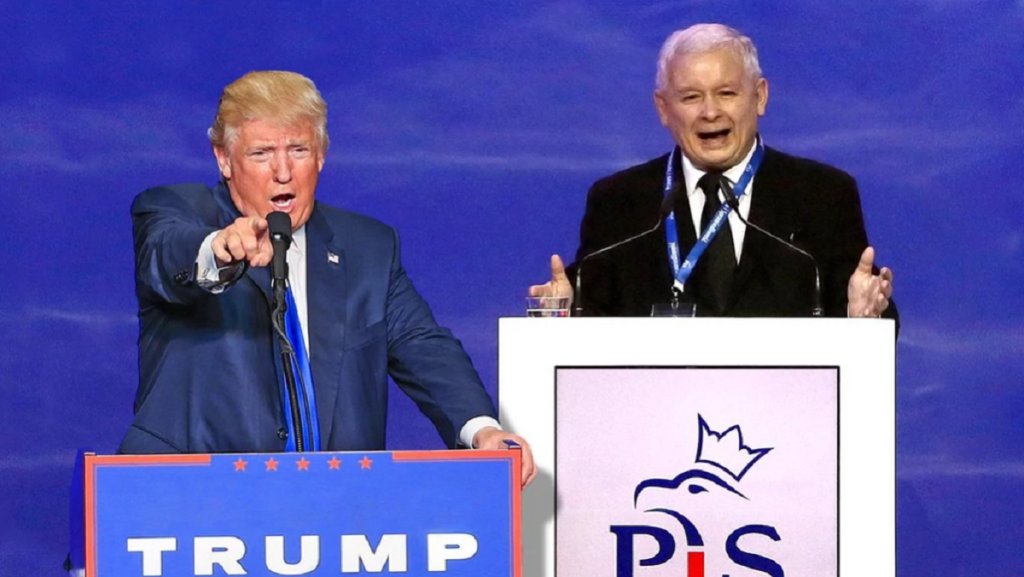
Photo by Newsweek.pl
As a result of the assassination attempt, Trump’s approval ratings rose to 52-53% with 47-48% for his potential rivals in the form of Joe Biden and Kamala Harris, and the estimate of the likelihood of his victory rose from 60-65% to 70-75%. Jarosław Kaczyński is using these facts to increase internal party discipline in PiS, as well as to strengthen his control over the Confederation Party, which is very important to him as a “junior partner”.
Kaczyński’s key task now is campaigning ahead of Poland’s presidential election, where former Defense Minister Mariusz Błaszczak or former Prime Minister Mateusz Morawiecki are likely to be the candidates. Following the European Parliament elections, there were internal divisions within the party and uncertainty about the future due to the threat of losing the presidency. But after Trump’s “spurt”, discipline has improved, and most of the PiS asset considers the likelihood of electing a fellow party member as extremely high.
In addition, the conflict within the Confederation party has been mitigated. Co-chairman Krzysztof Bosak declined the nomination in favor of his “friend” Sławomir Mentzen, who will clearly play in the interests of Kaczyński’s party. His role in the election will be limited to consolidating the radical right-wing electorate and then transferring it to support the Right and Justice nominee in the second round. Against this background, representatives of “PiS” plan to hold talks with Trump’s team about support. They may take place in the format of an informal meeting or within the framework of the visit of Polish President Andrzej Duda to the United States to discuss support for Ukraine and other issues. They are highly likely to discuss details of the Trump administration’s organizational, financial and political support for PiS in 2025.
Who can oust Kaczyński?
The processes within the Law and Justice party in the Polish presidential election campaign were mixed, and quickly changed from positive, to negative. Confidence in victory quickly turned into a conviction that the party’s candidate in 2025 would be defeated, which could lead to the removal of Jarosław Kaczyński as PiS leader. Already September opinion polls before the U.S. presidential election had formed the opinion among PiS elites that Kamala Harris would win. This would mean that the American government would support the “Civic Platform” candidate Rafał Trzaskowski. In this situation, the PiS candidate is highly likely to be defeated, which would deprive the party of its last administrative leverage at the governmental level. This would diminish Jarosław Kaczynski’s authority as party leader and create grounds for his replacement at the party conference. This is why the PiS politicians vying for Kaczynski’s seat and the pressure groups behind them have now become more active.
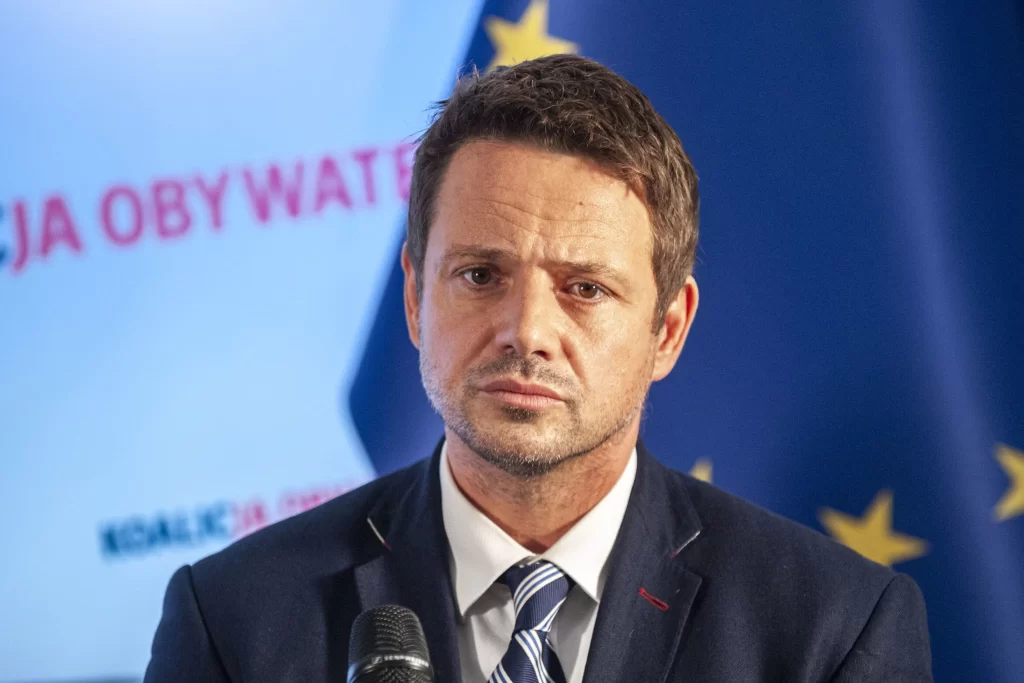
Photo by Wprost.pl
Contradictions are only growing, and the first group is led by former Prime Minister Mateusz Morawiecki. He has the greatest influence in the party, as well as financial and political resources, posing the greatest threat to Kaczyński. Realizing this, Kaczyński has recently been regularly trying to damage his image by deliberately blaming all of PiS’s blunders during his 2017-2023 leadership on him. Because of this development, Morawiecki is most interested in ousting Kaczyński, because otherwise he could eventually lose all his political positions if Kaczyński’s line of discrediting continues.
The second candidate is former National Defense Minister Mariusz Błaszczak. His strong point is his high credibility with Kaczyński, so he can strengthen his apparatus weight before the possible conference. Besides, being Kaczyński’s close confidant, he may try to persuade him to step down voluntarily by supporting Błaszczak’s candidacy as his successor under certain guarantees of preserving his political influence. However, Błaszczak’s weakness will be that he will be defeated in the elections and part of the responsibility for this will fall on him, which will motivate him not to support his candidacy as the new PiS leader.
Beata Szydło, former prime minister in 2015-2017, is also a contender for the party leadership. Her strength is also her controllability and her ability to convince Kaczyński to voluntarily hand over the reins of power to her, with guarantees that she will retain her informal weight in the party. The last group is headed by the leader of the radical conservative wing of the party and member of the European Parliament, Patryk Jaki. He enjoys the highest rating among the grassroots activists of the PiS, but in comparison with the other contenders has the least apparatus weight.
The “Ukrainian map” of the two parties
Yet Law and Justice is not going to give up, playing the “Ukrainian card” in the opposite direction from the way it behaved when it was in power. And this was evident during the scandal that took place with Ukrainian Foreign Minister Dmytro Kuleba. During a speech at Campus Polska, Kuleba blatantly ignored the question about the timing of exhumation of the victims of the Volhynian massacre, demanding first to honor the memory of Ukrainian soldiers and to establish Ukrainian schools in Warsaw. However, the Polish side did not respond to this. Confederation MP Michał Wawer condemned the behavior of the authorities and called to make Kuleba persona non grata in Poland. However, Donald Tusk and Foreign Minister Radosław Sikorski act in the paradigm of friendship with Ukraine, which the U.S. and EU imposed on Warsaw, and are not going to criticize Kiev on the issue of historical memory. In addition, Civic Platform sees the stirring up of anti-Ukrainian sentiments as harmful to itself in the run-up to the presidential election, making support for Ukraine part of its electoral program.
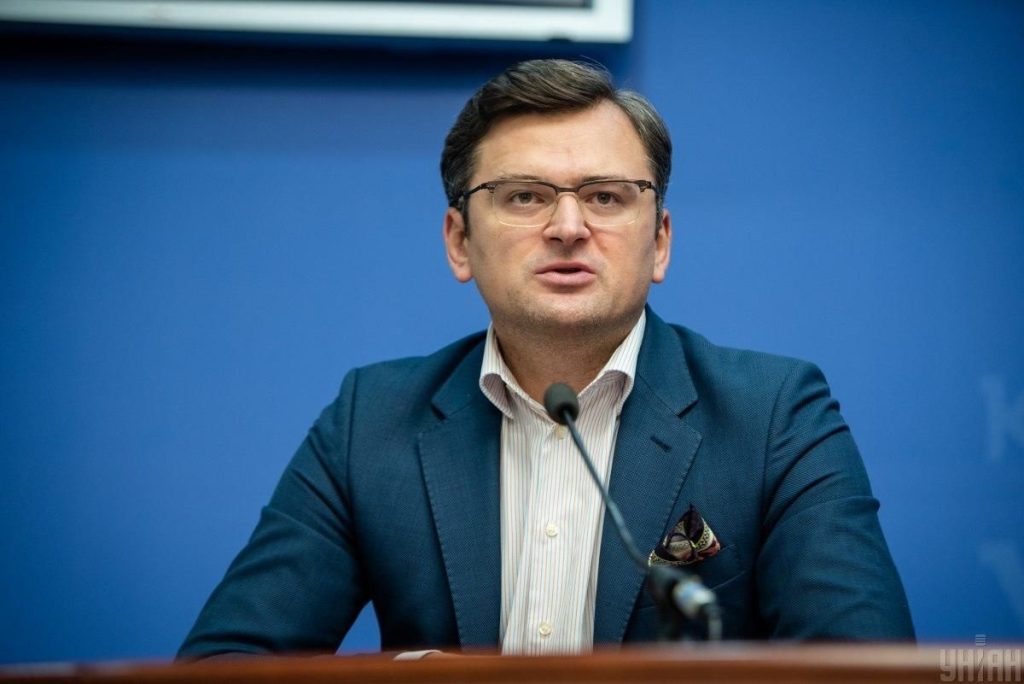
Photo by Ukraineun.org
In this light, Rafał Trzaskowski, as the main candidate of the Civic Platform, will promote the establishment of the same Ukrainian schools in the Polish capital. Although Sikorski gently acknowledged that the issue of exhumation of genocide victims in Volhynia is problematic, he will not take aggressive actions against Ukraine and will not grant Kuleba persona non grata status.
The “PiS” and “Confederation” parties, on the contrary, see in fostering anti-Ukrainian sentiments and working with the anti-Ukrainian electorate prospects. Michał Wawer is a member of Krzysztof Bosak’s Ruch Nardowy movement. He made his statement with the knowledge of Bosak and the PiS establishment. “Law and Justice” cannot openly come out with anti-Ukrainian initiatives due to both the more moderate nature of its electorate and the existence of pro-Ukrainian commitments to the U.S. Republican establishment. De facto, the right to such rhetoric has been delegated to the “Confederation”, which should accumulate the anti-Ukrainian electorate and transfer it as much as possible to the PiS candidate in the second round of the presidential election.
This is a big problem for the Civic Platform, which was not resolved in November and will only get worse when Donald Trump takes the White House. And Poland will continue to be an arena for the projection of American domestic disputes, because they are no less relevant to any country in Europe than its own domestic politics.
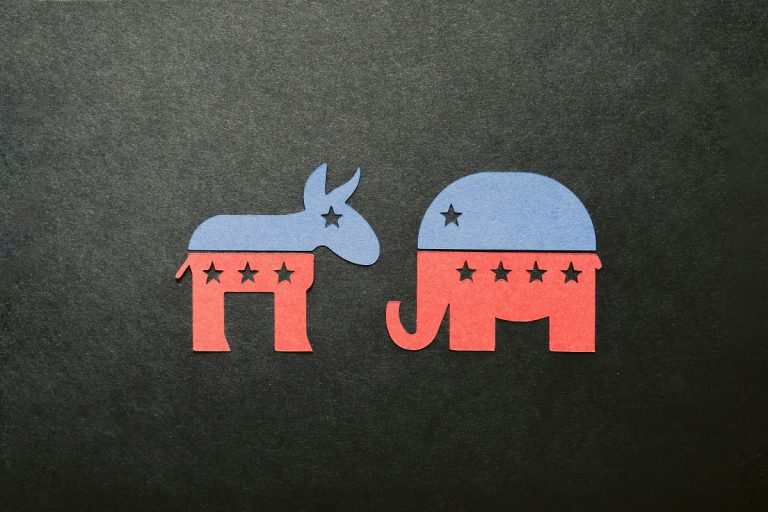
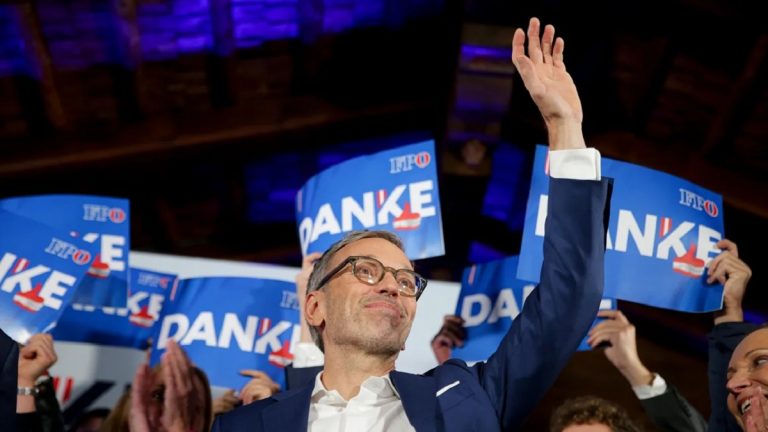
Average Rating